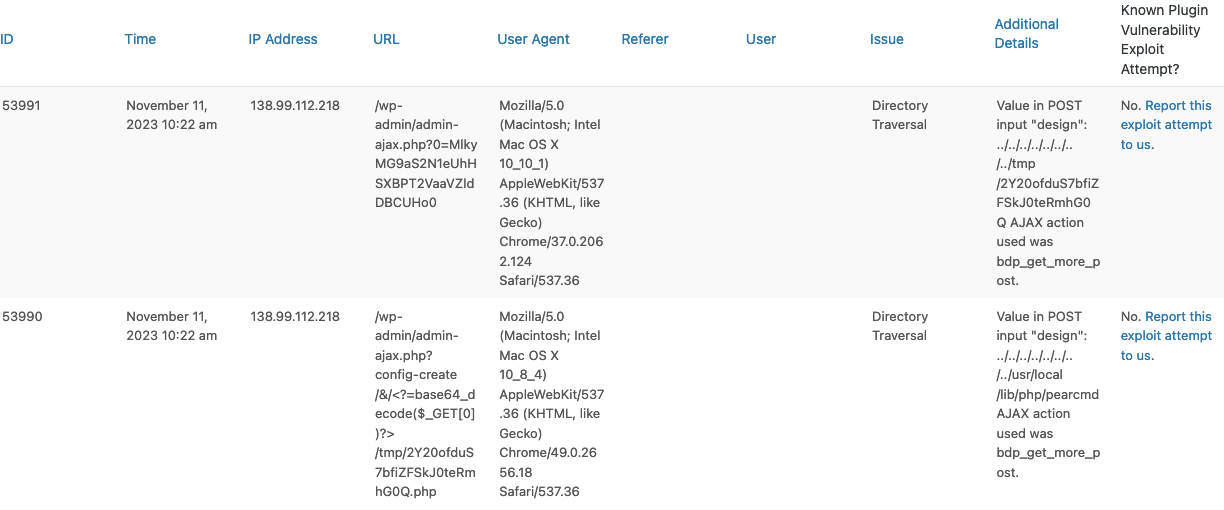WordPress Security Providers Failing to Warn About Vulnerability in Plugin Hacker Likely Targetting
Across various data we monitor we have been seeing what looks to be a hacker or hackers trying to find websites using the plugin Kubio Pro, by requesting this url: /wp-content/plugins/kubio-pro/readme.txt. At first we were puzzled as to what might explain that. There isn’t a plugin on the WordPress Plugin Directory with the slug kubio-pro, so that would mean either it likely was a plugin made available somewhere else or a backdoor disguised as a plugin. We looked for any information on the web about a vulnerability in a plugin with that slug or the name Kubio Pro and came up with nothing. The same is true for competing data sources for information on vulnerabilities in WordPress plugins.
WPScan, owned by Automattic, serves a not found page for the URL that would contain data on vulnerabilities for a plugin with that slug: [Read more]
